Little Ireland
Who Do You Think You Are? Magazine
|March 2017
Caroline Scott reveals the prejudice and poverty faced by Irish migrant communities in 19th-century Britain.
-

Friedrich Engels observed in 1845: “These Irishmen who migrate for four pence to England, on the deck of a steamship on which they are often packed like cattle,insinuate themselves everywhere… the worst quarters of all the large towns are inhabited by Irishmen. Whenever a district is distinguished for especial filth and especial ruinousness, the explorer may safely count upon meeting chiefly those Celtic faces.”

As economic migrants were drawn to centres of dock, canal and railway building, textile and chemical manufacturing; mining and iron working, warehouses and markets, so many northern towns had an Irish population of significant size by the time the 1841 census was taken. With most, though by no means all, in unskilled and casual employment, they found themselves living in districts of overcrowded and unhealthy houses.
Industrial cities had grown rapidly in the first decades of the 19th century, but the quantity of housing stock had not kept pace with population expansion and the infrastructure just couldn’t cope. By the 1830s, Britain’s manufacturing centres were overcrowded and insanitary, viewed as urban jungles, threateningly simmering with social and moral disorder.
Denne historien er fra March 2017-utgaven av Who Do You Think You Are? Magazine.
Abonner på Magzter GOLD for å få tilgang til tusenvis av kuraterte premiumhistorier og over 9000 magasiner og aviser.
Allerede abonnent? Logg på
FLERE HISTORIER FRA Who Do You Think You Are? Magazine
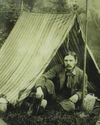
Who Do You Think You Are? Magazine
'My Tree Includes The Pioneer Of A Great British Pastime'
Pauline Godsall is proud to share a connection with Thomas Hiram Holding – a true British eccentric who encouraged our forebears to enjoy the great outdoors
3 mins
January 2018

Who Do You Think You Are? Magazine
30-Minute Genealogist
Sara Khan shows how you can break down brick walls in your research in just half an hour
1 min
January 2018
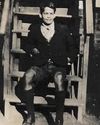
Who Do You Think You Are? Magazine
'The FIBIS Database Smashed My Brick Wall'
Edwina Bentley was struggling to find her father’s family in India. Fortunately the Families In British India Society came to the rescue, learns Jon Bauckham
4 mins
January 2018
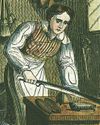
Who Do You Think You Are? Magazine
My Ancestor Was A...Brushmaker
Until the arrival of mass production, creating a brush required the hard work of a team of highly skilled craftsmen, says KA Doughty
5 mins
January 2018
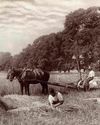
Who Do You Think You Are? Magazine
Focus On Manorial Court Rolls
Court rolls are useful for both researching the pre-industrial era and finding your Victorian ancestors, explains Nick Barratt
4 mins
January 2018

Who Do You Think You Are? Magazine
Accidents and Suicides Killed My Ancestors
Alison Burtt grew up with a sense of mystery as her father was unable to tell her much about his roots. The truth she uncovered was shocking, Matt Ford discovers.
7 mins
April 2017

Who Do You Think You Are? Magazine
Find A New Direction
Maps are a valuable resource often overlooked by family historians. Pam Ross explains why they’re worth exploring.
8 mins
April 2017

Who Do You Think You Are? Magazine
Cold Comfort
Ice skating is a timeless way to enjoy a wintry day. Amanda Randall looks at how our ancestors got their skates on
7 mins
January 2018

Who Do You Think You Are? Magazine
Addicted To The Thrill Of Detection
New Year is a time to cut down on vices – but it’s hard to break the grip of family history, says Alan Crosby
3 mins
January 2018
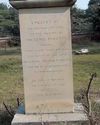
Who Do You Think You Are? Magazine
Photographs From India
The Families in British India Society tells Alan Crosby about a project to capture our ancestors’ graves
3 mins
January 2018
Translate
Change font size

